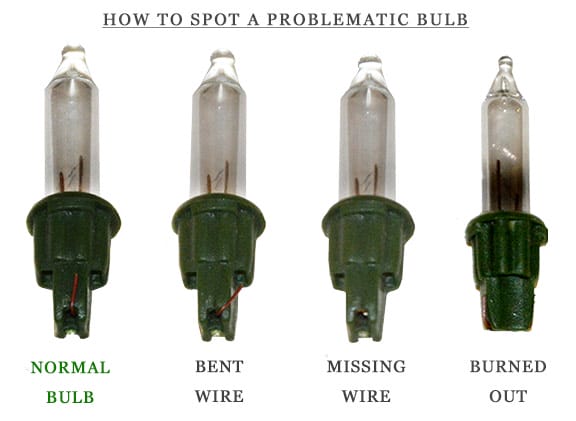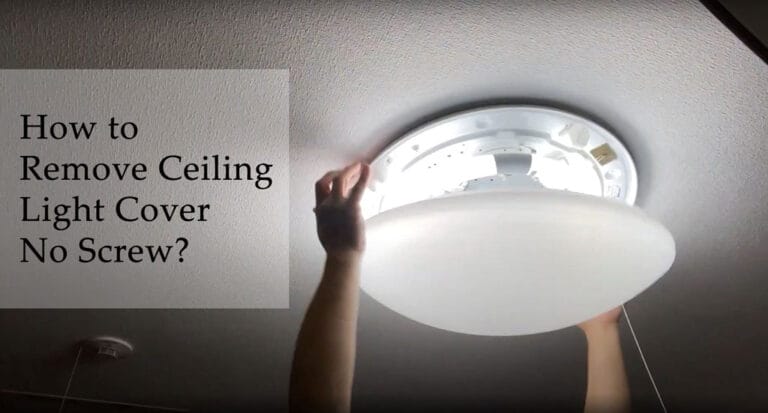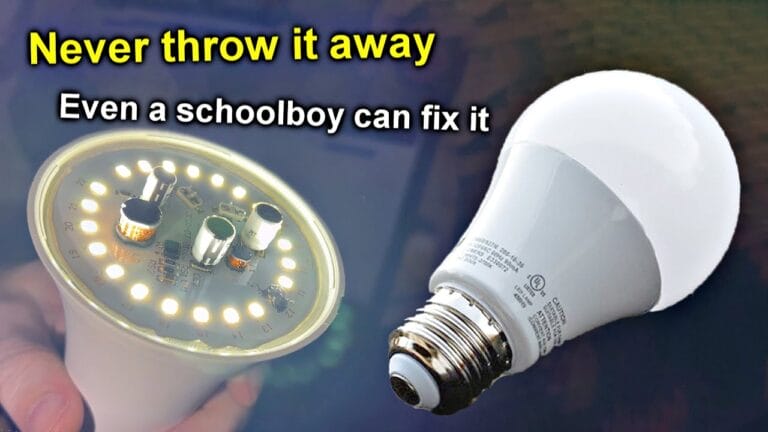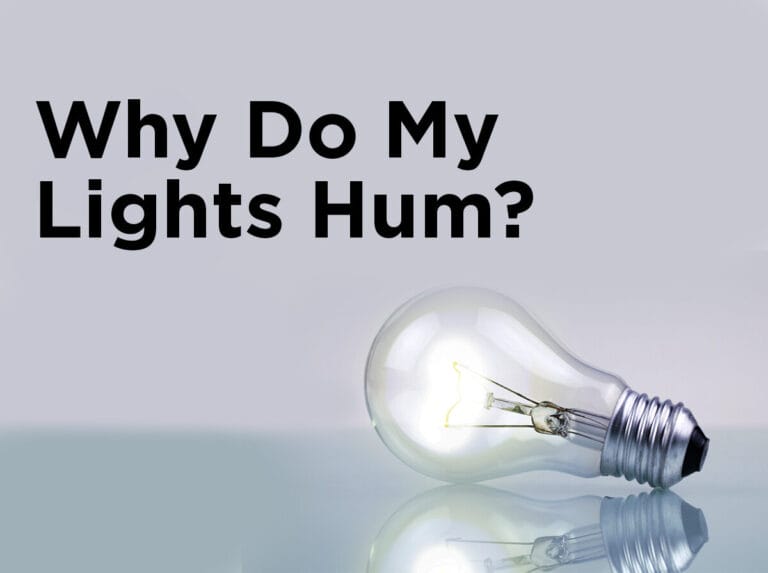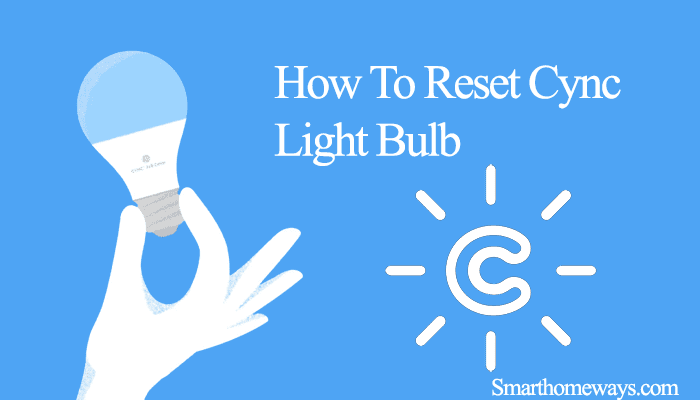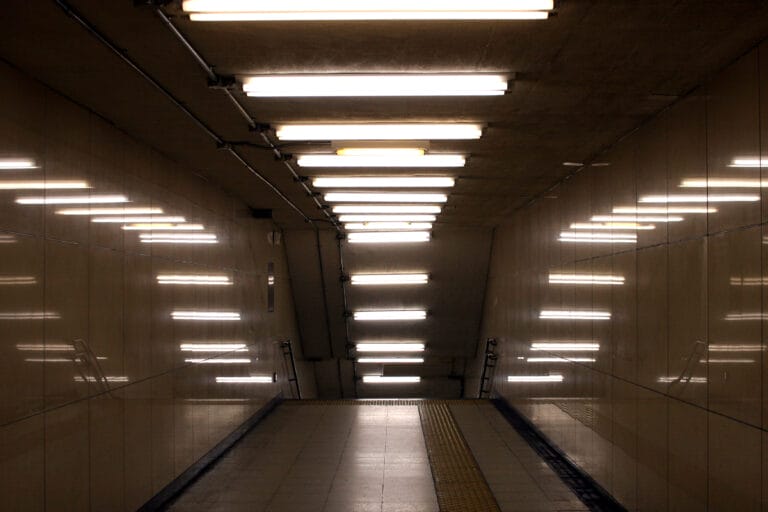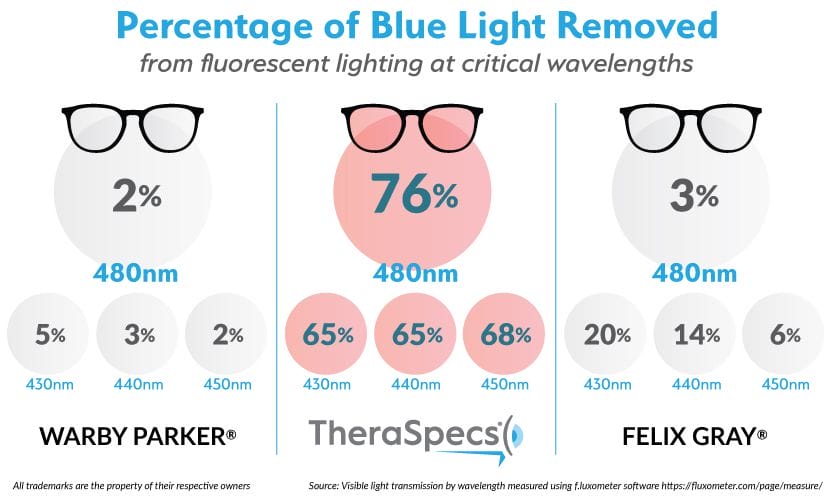
Do blue light glasses help with fluorescent lights? It’s a question that many people are curious about. We’ll uncover the truth behind these trendy glasses and whether they can really make a difference in the world of fluorescent lighting.
Fluorescent lights are a common fixture in offices, schools, and other indoor environments. But did you know that these lights emit a significant amount of blue light? Some studies suggest that exposure to blue light can contribute to eye strain, headaches, and disrupted sleep patterns.
That’s where blue light glasses come in. Designed to filter out the harmful blue light emitted by fluorescent lights, these glasses claim to alleviate the negative effects associated with prolonged exposure. But do they really work? Let’s dive in and find out!
Do Blue Light Glasses Help With Fluorescent Lights?
Are you wondering if blue light glasses can help with fluorescent lights? While blue light glasses are designed to filter out harmful blue light emitted by screens, they may not be as effective as fluorescent lights.
Fluorescent lights emit a different type of light compared to screens, so the benefits of blue light glasses may not be as pronounced. However, blue light glasses can still provide some protection against eye strain and fatigue when used in various lighting environments.
How Blue Light Glasses Work
Before diving into the specific question of whether blue light glasses help with fluorescent lights, it’s important to understand how these glasses work. Blue light glasses are designed to filter out or block a certain percentage of blue light emitted from electronic screens, LED lights, and other sources.
They feature specialized lenses that selectively absorb or reflect blue light wavelengths, reducing the amount that reaches our eyes.
Blue light glasses usually have a yellow or amber tint, which is responsible for blocking the blue light. These lenses can be either prescription or non-prescription, allowing individuals with or without vision correction needs to benefit from their protective features.
By filtering out blue light, these glasses aim to minimize the eye strain, fatigue, and potential long-term effects associated with prolonged exposure to blue light.
While blue light glasses have been primarily marketed as a solution for electronic devices such as computers, smartphones, and tablets, their effectiveness in reducing the blue light emitted by fluorescent lights is a topic of debate.
Let’s explore the different aspects of this question to better understand the potential benefits of blue light glasses in fluorescent-lit environments.
Impact of Blue Light from Fluorescent Lights
Fluorescent lights emit a high amount of blue light. This type of light has a shorter wavelength and higher energy compared to other colors in the visible spectrum. Prolonged exposure to blue light, especially at high intensities, can lead to a range of negative effects on our eyes and overall health. Some of the common issues associated with blue light exposure include:
- Eye strain and fatigue
- Disrupted sleep patterns
- Dry and irritated eyes
- Headaches
- Inability to focus properly
- Increased risk of macular degeneration
Considering these potential risks, it is important to address the impact of fluorescent lights on our well-being, and whether blue light glasses can offer any relief.
Effectiveness of Blue Light Glasses
While blue light glasses are primarily designed for use with electronic devices, some manufacturers claim that they can also help with reducing the impact of blue light from fluorescent lights. However, it’s worth noting that the effectiveness of blue light glasses in this context is still a subject of research and debate.
Although the specialized lenses in blue light glasses can block or filter blue light, fluorescent lights emit a broad spectrum of light, including blue light, UV light, and other colors.
The amount of blue light blocked by blue light glasses may not be sufficient to completely eliminate the potential negative effects of fluorescent lighting.
Furthermore, the specific wavelength of blue light emitted by fluorescent lights can vary depending on the type of bulb used. This variation makes it difficult to determine the exact blue light protection provided by blue light glasses, as their lenses are often designed to target specific blue light wavelengths.
While some individuals may experience a reduction in eye strain and discomfort when wearing blue light glasses in fluorescent-lit environments, the overall effectiveness can vary from person to person.
It’s important to keep in mind that blue light glasses should not be viewed as a standalone solution, but rather as one component of a comprehensive approach to reducing blue light exposure.
Alternative Solutions for Fluorescent Lighting
If you work or spend a significant amount of time in a fluorescent-lit environment, there are other measures you can take to minimize the potential negative effects of blue light exposure. Consider implementing the following strategies:
- Take regular breaks and look away from the fluorescent lights to give your eyes a rest.
- Adjust the brightness of your computer or device screen to reduce the overall intensity of the blue light.
- Consider using screen filters or applying blue light-blocking software to your electronic devices.
- Opt for light fixtures that use bulbs with lower blue light emission, such as full-spectrum or warm white bulbs.
- Improve the overall lighting in the room by incorporating natural light sources or using softer, diffused lighting options.
- Consult with an eye care professional to determine if you would benefit from specific lenses that address the potential risks associated with blue light exposure.
By combining these strategies with the use of blue light glasses, you can create a more comprehensive approach to reducing the impact of fluorescent lighting on your eyes and overall well-being.
While blue light glasses can provide some benefits in reducing the negative effects of blue light from electronic devices, their effectiveness in mitigating the impact of fluorescent lights is still somewhat uncertain.
While some individuals may experience relief from eye strain and fatigue when wearing blue light glasses in fluorescent-lit environments, it’s important to consider them as part of a broader strategy that includes other measures to reduce blue light exposure.
Ultimately, the decision to invest in blue light glasses for fluorescent lights should be based on your individual circumstances, preferences, and consultation with an eye care professional.
By staying informed and adopting a holistic approach to eye health, you can better protect yourself from the potential risks associated with prolonged exposure to blue light in fluorescent-lit environments.
Frequently Asked Questions
Welcome to our FAQ section on the topic of blue light glasses and their effectiveness against fluorescent lights. Below, you’ll find answers to common questions related to this topic. Whether you’re curious about the benefits of blue light glasses or wondering if they can help with the effects of fluorescent lighting, we’ve got you covered. Read on to find out more!
1. Are blue light glasses effective in reducing eye strain caused by fluorescent lights?
Yes, blue light glasses can be effective in reducing eye strain caused by fluorescent lights. Fluorescent lights emit a significant amount of blue light, which can be harsh on the eyes and lead to discomfort and fatigue.
Blue light glasses are specifically designed to filter out a portion of blue light, helping to reduce eye strain. By blocking or absorbing the harmful blue light rays, these glasses can provide relief and make extended periods under fluorescent lighting more comfortable.
However, it’s important to note that the effectiveness of blue light glasses may vary from person to person. Some individuals may experience more noticeable benefits, while others may not see significant changes. It’s always best to try out blue light glasses for yourself and see if they make a difference in reducing eye strain caused by fluorescent lights.
2. Can wearing blue light glasses improve sleep quality when exposed to fluorescent lights?
Yes, wearing blue light glasses can potentially improve sleep quality when exposed to fluorescent lights. Exposure to blue light, especially in the evening or nighttime, can disrupt our natural sleep-wake cycle. It suppresses the production of melatonin, a hormone that regulates sleep.
Fluorescent lights emit a significant amount of blue light, which can interfere with our ability to fall asleep and have a restful night.
By wearing blue light glasses, you can filter out the blue light emitted by fluorescent lights and minimize its impact on your sleep quality. These glasses help to maintain your body’s natural melatonin production, allowing you to feel more tired and ready for sleep when it’s time to hit the hay.
However, it’s important to establish a consistent bedtime routine and limit screen time before bed to further optimize your sleep quality.
3. Do blue light glasses protect against the potential long-term effects of fluorescent lights?
While blue light glasses can provide short-term relief from the immediate effects of fluorescent lights, they do not protect against the potential long-term effects associated with long-term exposure. Fluorescent lights, specifically those with high levels of ultraviolet (UV) radiation, can pose risks to the eyes, such as cataracts and age-related macular degeneration (AMD).
Blue light glasses primarily focus on blocking or absorbing blue light, which is one component of the light spectrum emitted by fluorescent lights.
To fully protect against the potential long-term effects, it’s important to take additional measures such as wearing UV-blocking sunglasses, using proper lighting fixtures, and maintaining a safe distance from the source of fluorescent lights.
4. Can blue light glasses alleviate symptoms of headaches caused by fluorescent lights?
Yes, blue light glasses have the potential to alleviate symptoms of headaches caused by fluorescent lights. Exposure to fluorescent lights, especially for prolonged periods, can trigger headaches in susceptible individuals. One of the contributing factors is the blue light emitted by these lights, which can disrupt the normal functioning of the brain and cause discomfort.
By filtering out a portion of the blue light, blue light glasses can potentially reduce the intensity and frequency of headaches caused by fluorescent lights. However, it’s important to note that individual experiences may vary.
Some individuals may find significant relief, while others may experience more modest improvements. It’s always best to consult with a healthcare professional if you frequently experience headaches or have concerns about your eye health.
5. Can blue light glasses improve focus and productivity in fluorescent-lit environments?
Yes, wearing blue light glasses can potentially improve focus and productivity in fluorescent-lit environments. Fluorescent lights emit a significant amount of blue light, which can be stimulating and affect the brain’s ability to concentrate.
This can lead to distractions, reduced productivity, and difficulties in staying focused on tasks.
By reducing exposure to blue light, blue light glasses may help to minimize these distractions and improve the ability to concentrate in fluorescent-lit environments. Many individuals have reported enhanced focus, increased alertness, and improved productivity when wearing these glasses.
However, it’s important to note that results may vary, and the effectiveness of blue light glasses in improving focus and productivity can depend on individual factors such as visual health and personal preferences.
So, do blue light glasses really help with fluorescent lights? Well, it’s a bit tricky. Fluorescent lights do emit blue light, which can strain our eyes and disrupt sleep. Blue light glasses claim to block this light and reduce eye strain.
However, there isn’t enough scientific evidence to fully support their effectiveness. Some people find relief wearing them, while others don’t notice much of a difference. Ultimately, it might be worth trying blue light glasses if you’re sensitive to fluorescent lights, but it’s not a guaranteed fix.
It’s always a good idea to take breaks, reduce screen time, and create a comfortable environment for your eyes.

